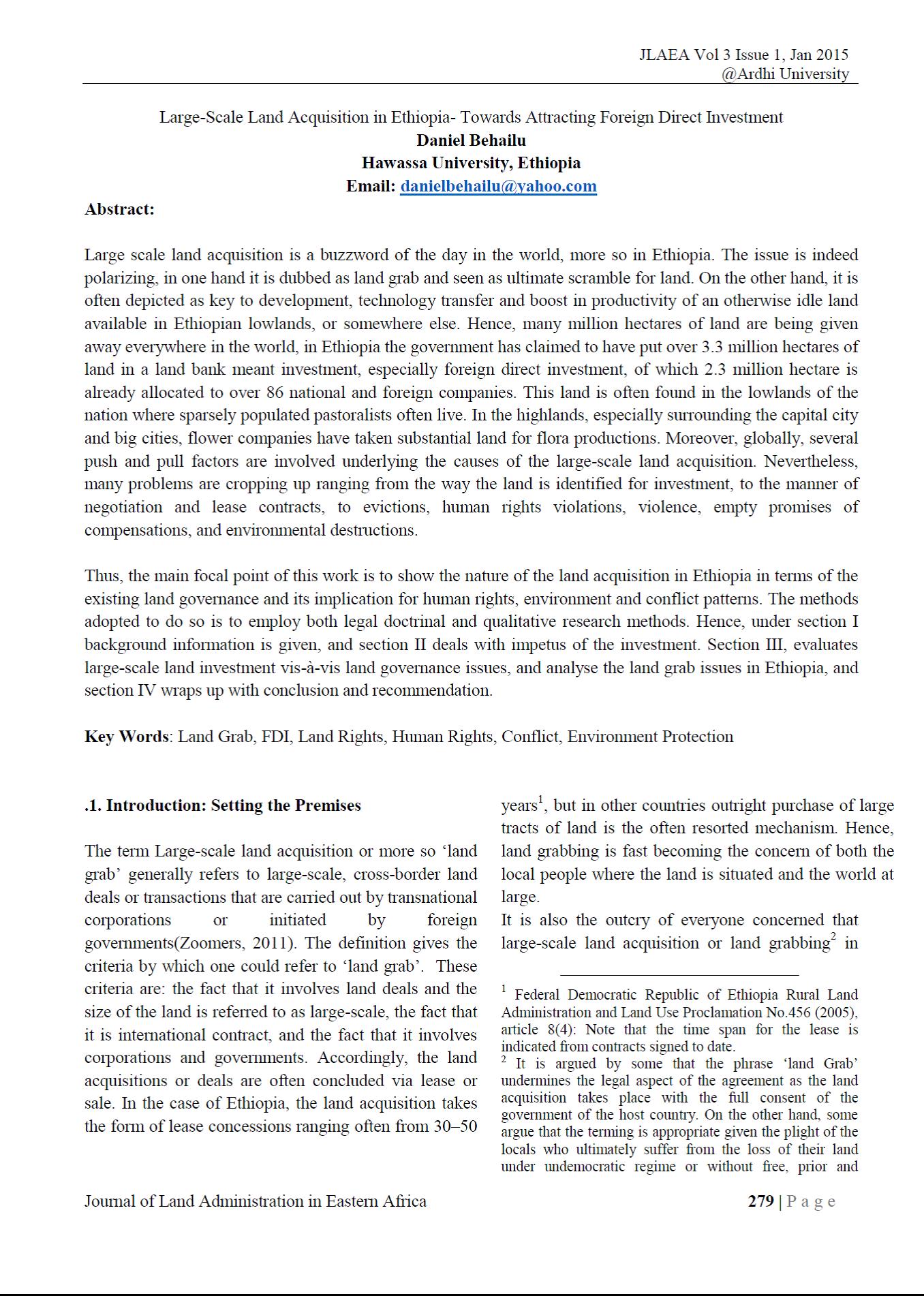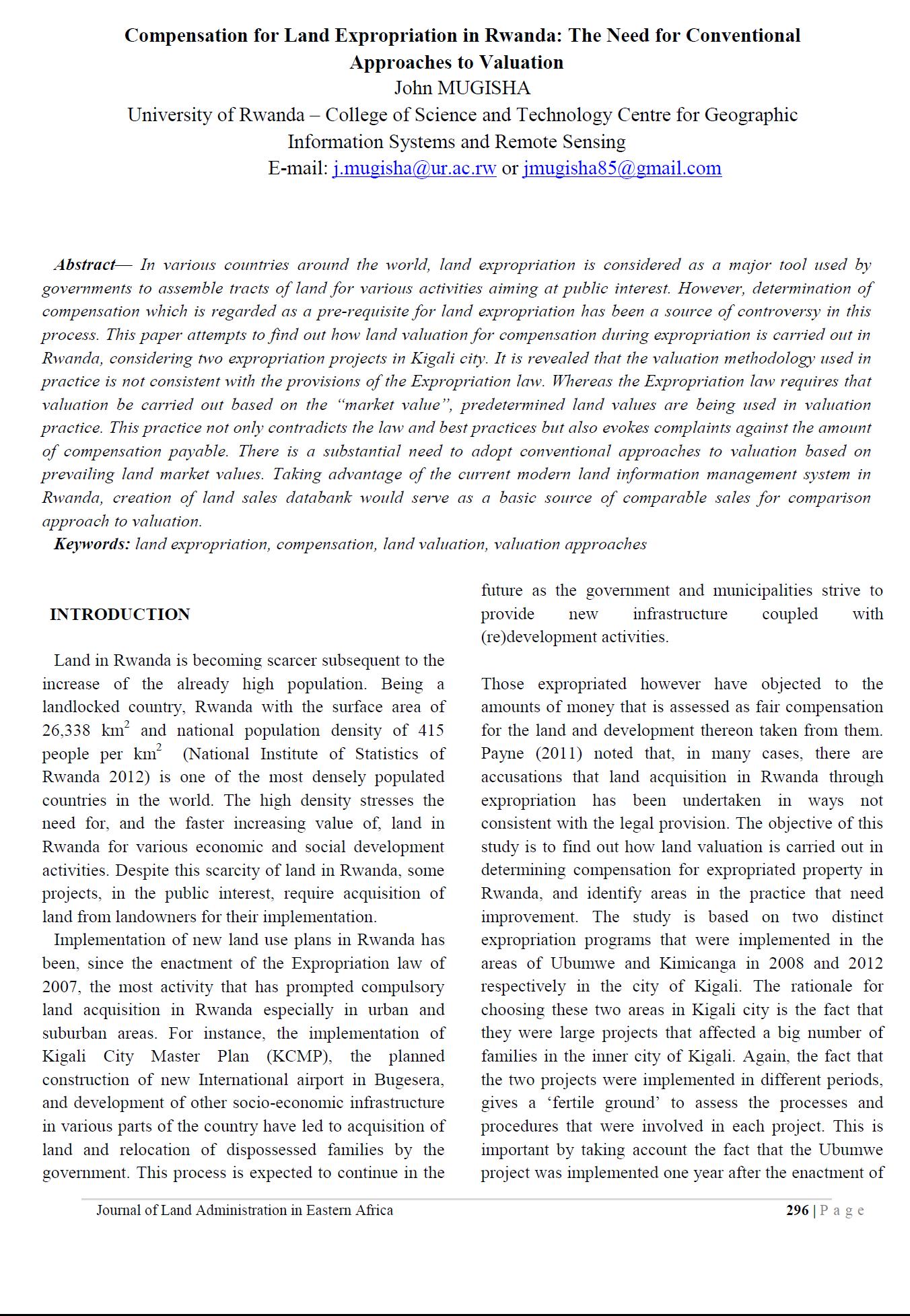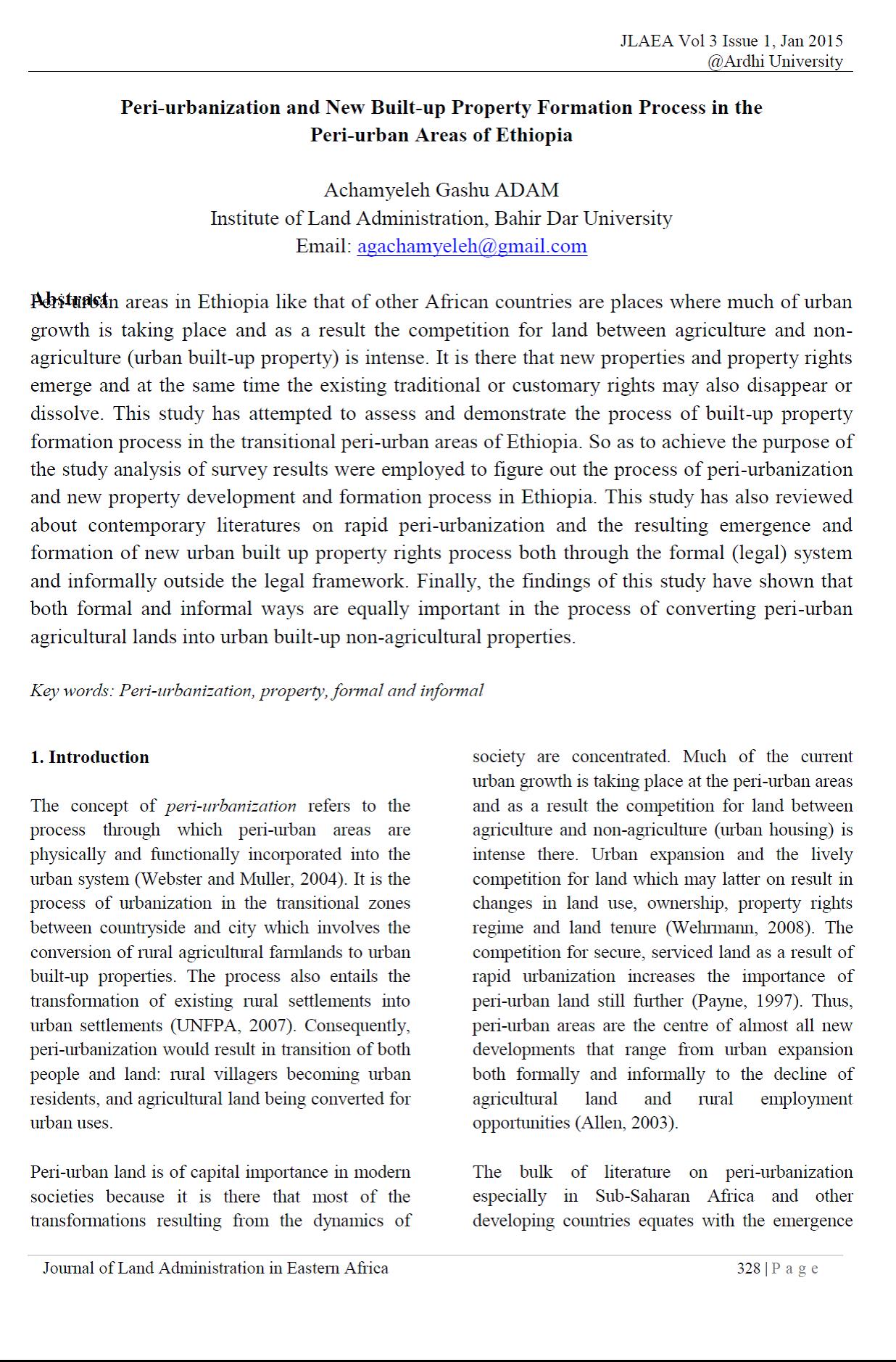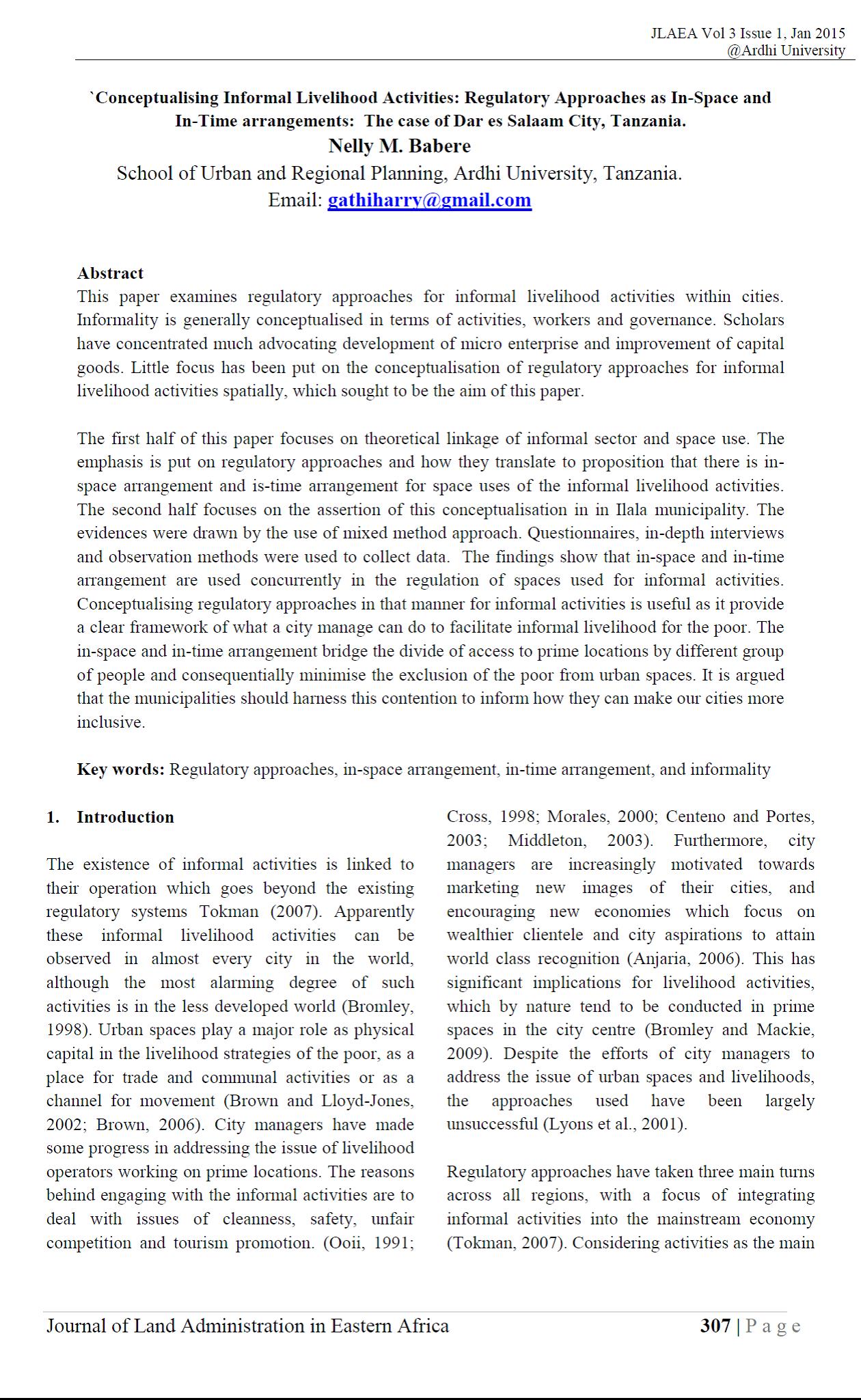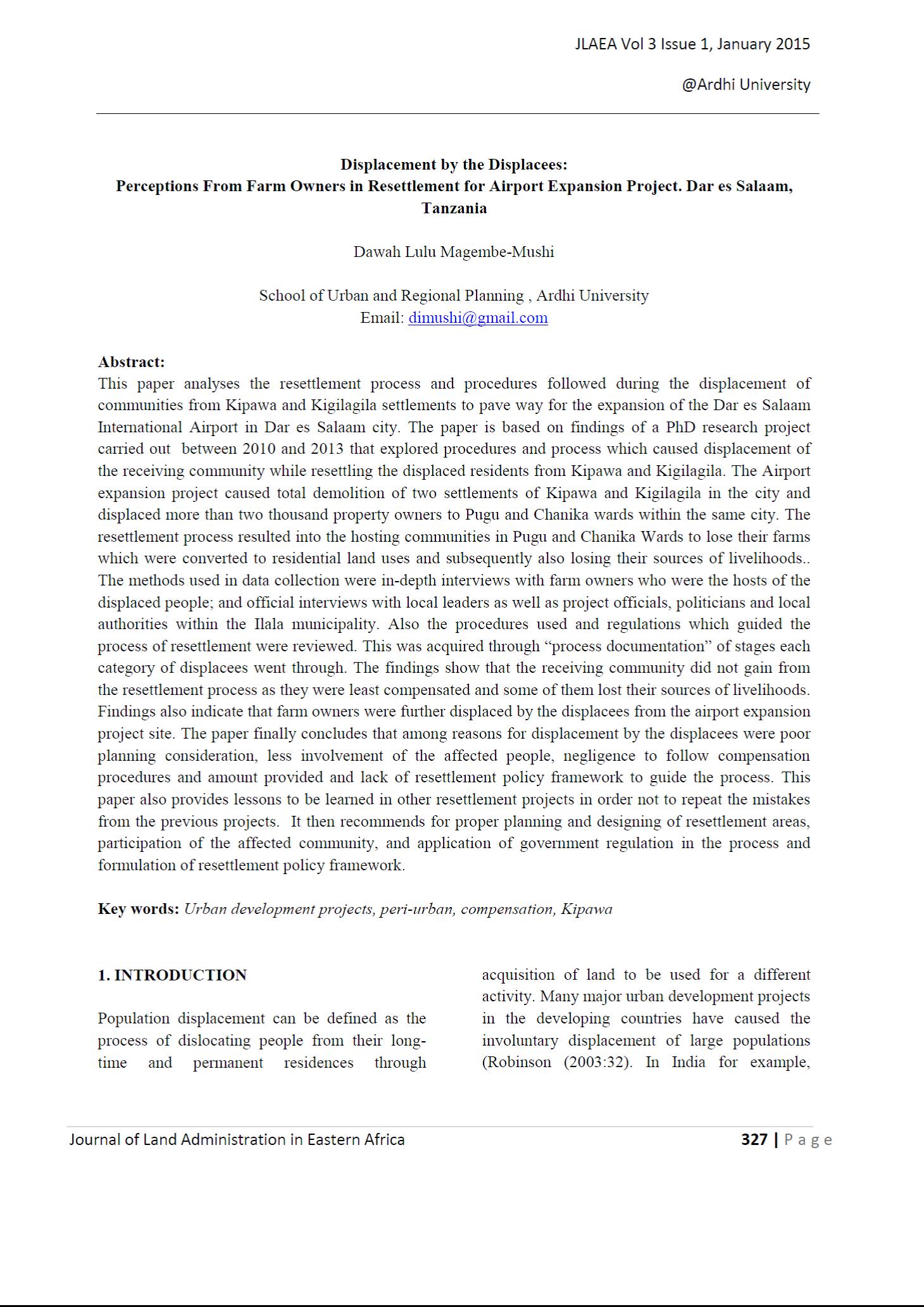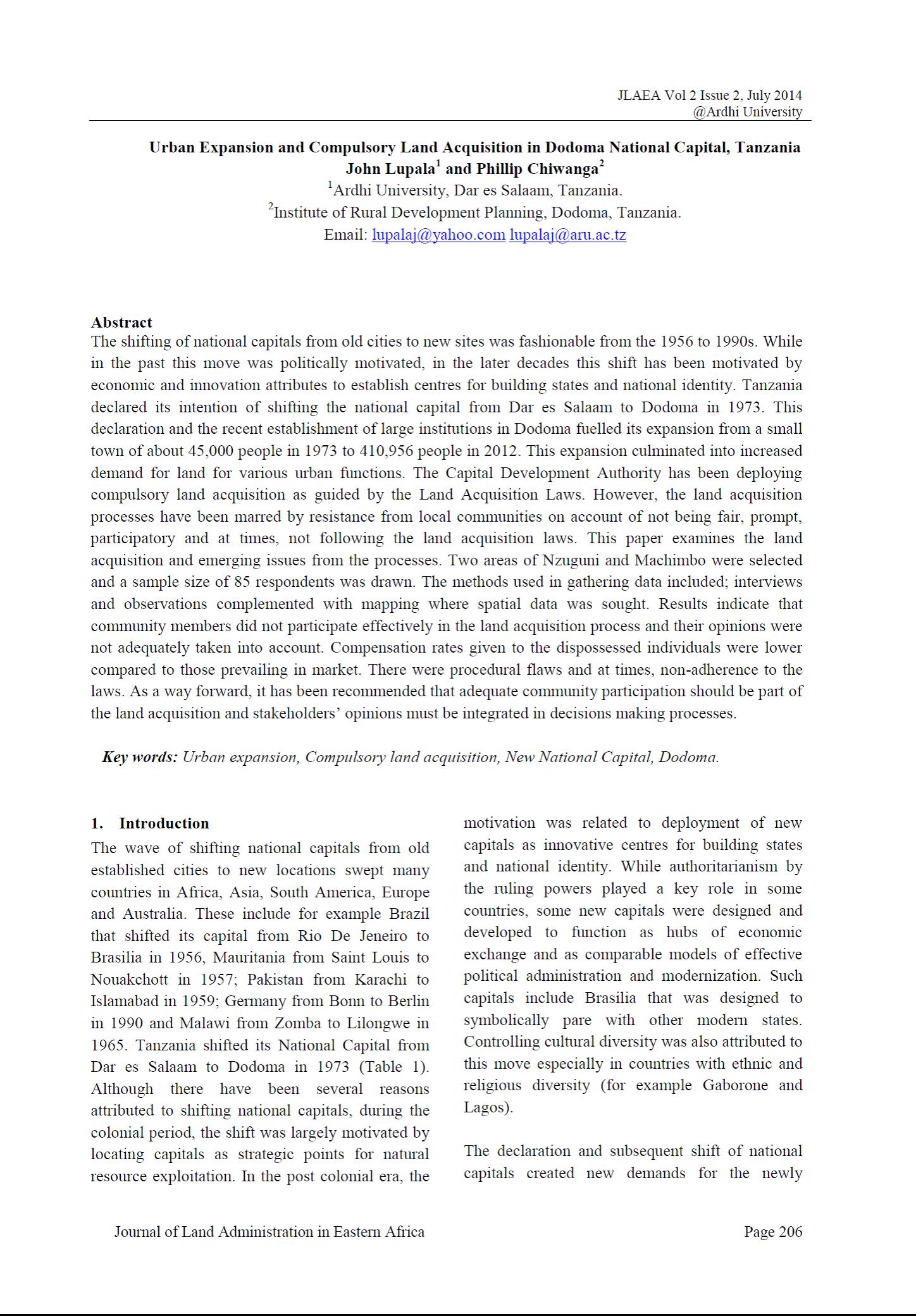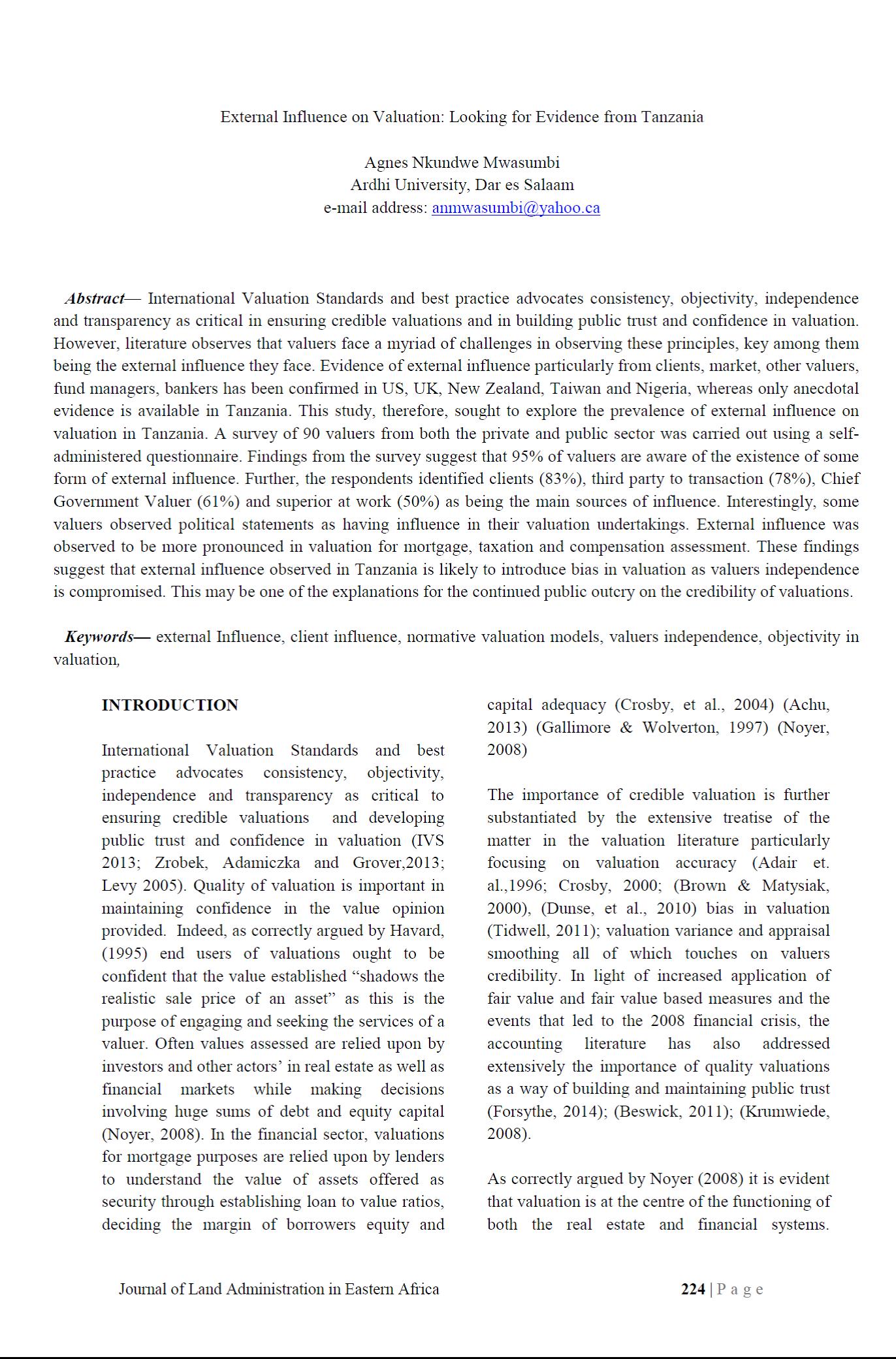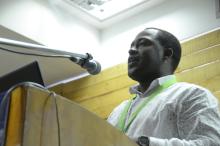
Topics and Regions
Godfrey Eliseus Massay is a lawyer and land tenure specialist.He has eight years of experience working on land rights and in the natural resource sector in Tanzania, and has written and published numerous articles on land rights in both national and international academic journals.
Details
Location
Contributions
Displaying 91 - 100 of 218Large-Scale Land Acquisition in Ethiopia- Towards Attracting Foreign Direct Investment
Large scale land acquisition is a buzzword of the day in the world, more so in Ethiopia. The issue is indeed polarizing, in one hand it is dubbed as land grab and seen as ultimate scramble for land. On the other hand, it is often depicted as key to development, technology transfer and boost in productivity of an otherwise idle land available in Ethiopian lowlands, or somewhere else.
Compensation for Land Expropriation in Rwanda: The Need for Conventional Approaches to Valuation
In various countries around the world, land expropriation is considered as a major tool used by governments to assemble tracts of land for various activities aiming at public interest. However, determination of compensation which is regarded as a pre-requisite for land expropriation has been a source of controversy in this process. This paper attempts to find out how land valuation for compensation during expropriation is carried out in Rwanda, considering two expropriation projects in Kigali city.
Peri-urbanization and New Built-up Property Formation Process in the Peri-urban Areas of Ethiopia
Peri-urban areas in Ethiopia like that of other African countries are places where much of urban growth is taking place and as a result the competition for land between agriculture and nonagriculture (urban built-up property) is intense. It is there that new properties and property rights emerge and at the same time the existing traditional or customary rights may also disappear or dissolve. This study has attempted to assess and demonstrate the process of built-up property formation process in the transitional peri-urban areas of Ethiopia.
Conceptualising Informal Livelihood Activities: Regulatory Approaches as In-Space and In-Time arrangements
This paper examines regulatory approaches for informal livelihood activities within cities. Informality is generally conceptualised in terms of activities, workers and governance. Scholars have concentrated much advocating development of micro enterprise and improvement of capital goods. Little focus has been put on the conceptualisation of regulatory approaches for informal livelihood activities spatially, which sought to be the aim of this paper.
Application of Road Selection Model for Transportation Improvement in Informal Settlements
The Road Selection Model was developed for the purpose of transportation improvement in informal settlements that minimises demolition of houses and compensation costs required in roads widening. The need of the model was to guide and support decision makers on challenges of widening narrow roads for accessibility and mobility improvement as part of upgrading informal settlements.
Displacement by the Displacees
This paper analyses the resettlement process and procedures followed during the displacement of communities from Kipawa and Kigilagila settlements to pave way for the expansion of the Dar es Salaam International Airport in Dar es Salaam city. The paper is based on findings of a PhD research project carried out between 2010 and 2013 that explored procedures and process which caused displacement of the receiving community while resettling the displaced residents from Kipawa and Kigilagila.
Displacement by the Displacees
This paper analyses the resettlement process and procedures followed during the displacement of communities from Kipawa and Kigilagila settlements to pave way for the expansion of the Dar es Salaam International Airport in Dar es Salaam city. The paper is based on findings of a PhD research project carried out between 2010 and 2013 that explored procedures and process which caused displacement of the receiving community while resettling the displaced residents from Kipawa and Kigilagila.
Access to the Land Tenure Administration System in Rwanda and the Impacts of the System on Ordinary Citizens
Over the last decade, the Government of Rwanda (GoR) has introduced several land reforms through formulation and enactment of enabling legal framework, establishment of land administration institutions and implementation of national land tenure regularization. Further, the Land Act of 2013 stipulated that all landholders must formally register their land. To support registration compliance, the GoR decentralized the Land Administration System (LAS) to all District Land Bureaus (DLBs).
Urban Expansion and Compulsory Land Acquisition in Dodoma National Capital, Tanzania
The shifting of national capitals from old cities to new sites was fashionable from the 1956 to 1990s. While in the past this move was politically motivated, in the later decades this shift has been motivated by economic and innovation attributes to establish centres for building states and national identity. Tanzania declared its intention of shifting the national capital from Dar es Salaam to Dodoma in 1973. This declaration and the recent establishment of large institutions in Dodoma fuelled its expansion from a small town of about 45,000 people in 1973 to 410,956 people in 2012.
External Influence on Valuation: Looking for Evidence from Tanzania
— International Valuation Standards and best practice advocates consistency, objectivity, independence and transparency as critical in ensuring credible valuations and in building public trust and confidence in valuation. However, literature observes that valuers face a myriad of challenges in observing these principles, key among them being the external influence they face.

